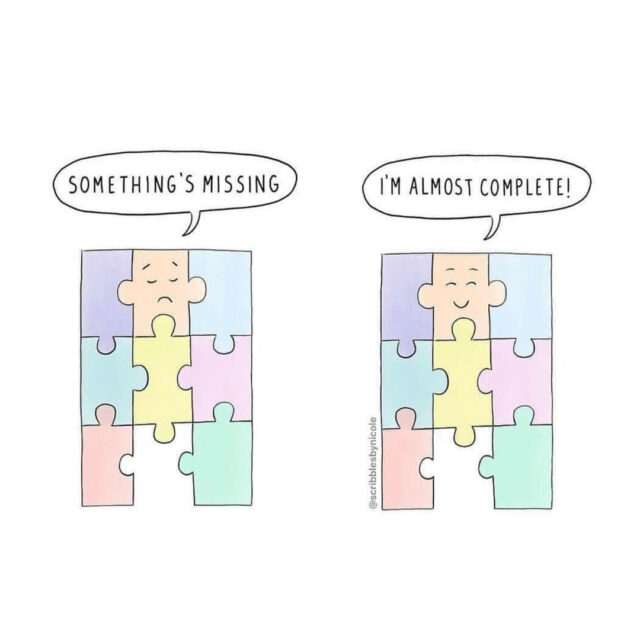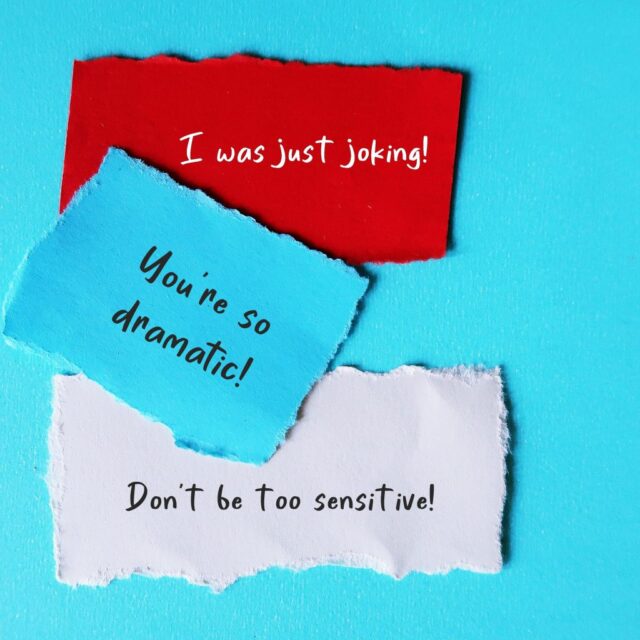Ever felt like you were losing your grip—not because you actually were, but because someone kept telling you that you were? That’s not drama. That’s gaslighting1. It’s not a disagreement. It’s not “just a different perspective.” It’s a calculated tactic—used to mess with your sense of reality until you start second-guessing your memory, your emotions, even your sanity2. It is psychological erosion dressed up as “just trying to help.”
You’ve probably heard phrases like:
“You’re too sensitive.”
“That never happened.”
“You always take things the wrong way.”
They sound harmless—until you realize they’re not meant to support you. They’re meant to destabilize you3. And when that kind of manipulation is passed off as something helpful, like “reframing”? That’s not therapy. That’s emotional sabotage.
The term comes from the 1944 movie Gaslight, where a guy slowly drives his wife bananas by dimming the gaslights in the house and pretending nothing’s happening4. She’s saying, “The lights are flickering,” and he says, “Are they? Or are you just losing it?” A+ villain moves, terrible marriage.
In modern psychology, gaslighting shows up in abusive relationships, toxic family dynamics, workplace manipulation, and yes, even politics5. It’s about control through distortion, and it leaves people feeling unmoored, doubting their gut, and second-guessing their memories6. It’s the psychological equivalent of Loki from Marvel whispering in your ear, “You’re the problem,” while shape-shifting into your therapist.
As George Carlin once said, “The reason they call it the American Dream is because you have to be asleep to believe it”7.

Reframing, in its pure, therapy-approved form, is like giving your brain a pair of new glasses8. You’re not changing the facts—you’re just shifting the angle you look at them from. Like turning, “I’m such a failure” into “I had a rough day, but that doesn’t define me.” It’s meant to empower, not confuse.
Gaslighting, on the other hand, is psychological warfare9. It’s when someone tries to manipulate your perception of reality—usually to gain control, dodge accountability, or just straight-up mess with your head.
For example: You say, “You really hurt my feelings when you joked about my anxiety.” They say, “You’re being too sensitive. I was just trying to help you laugh about it. You always take things the wrong way”10. They call it reframing. But what it really is? Dismissive. Manipulative. Gaslight-adjacent.
As Bill Burr might say: “Oh I’m sorry! Did my emotional honesty disrupt your delusional comfort zone?”11
Or say a parent tells a child, “You’re not angry. You’re just tired.” If the kid’s clearly mad, and this happens over and over again, that’s not reframing—that’s erasing12. That’s emotional invalidation wearing a therapist costume.
Reframing is like seasoning—it brings out the flavor of a situation and helps you digest it better. Gaslighting is like feeding you invisible soup and insisting you’re full. One is empowering; the other is destabilizing13.
Think Oprah gently guiding you to your truth versus Emperor Palpatine convincing you to betray your Jedi friends. Or as John Cleese said, “If people can’t control their own emotions, then they have to start trying to control other people’s behavior”14.
And if all else fails, just channel Phoebe Waller-Bridge sipping a lukewarm martini: “People are all we’ve got. So, stop messing with their heads like it’s your personal sandbox.”
So, if someone’s constantly “reframing” your reality and it makes you feel worse, confused, or crazy? Congratulations, you’re not being reframed. You’re being played.
The term “gaslighting” has become the soy sauce of internet arguments—splashed all over everything, even when it doesn’t belong15. Twitter (or X or whatever it’s calling itself this week) is basically one giant gaslight-off.
Did your roommate forget to do the dishes and then claim they didn’t know it was their turn? Mildly annoying—not gaslighting. Did your ex say you were “crazy” every time you caught them lying and delete texts to cover their tracks? Now we’re in gaslight territory.
Overuse waters down the meaning. People start confusing emotional abuse with everyday misunderstandings. Not every disagreement is a psychological thriller. Sometimes it’s just two people being annoying.

What should we do? Use “gaslighting” when it fits—when someone systematically manipulates your perception of truth to gain control or deflect blame. And for everything else? Call it what it is: lying, avoidance, confusion, or just being human.
Because not everything that feels bad is gaslighting. But when it is? It’s no joke.
Footnotes
1. Stern, Robin. The Gaslight Effect. Harmony Books, 2007.
2. Dorpat, Theodore L. Gaslighting…. Jason Aronson, 1996.
3. Sweet, Paige L. “The Sociology of Gaslighting.” American Sociological Review, vol. 84, no. 5, 2019, pp. 851–875.
4. Cukor, George, director. Gaslight. MGM, 1944.
5. Abramson, Kate. “Turning Up the Lights on Gaslighting.” Philosophical Perspectives, vol. 28, no. 1, 2014, pp. 1–30.
6. Sarkis, Stephanie Moulton. Gaslighting. Da Capo Lifelong Books, 2018.
7. Carlin, George. Brain Droppings. Hyperion, 1997.
8. Beck, Aaron T., and David A. Clark. Cognitive Therapy of Anxiety Disorders. Guilford Press, 2010.
9. Dorpat, Theodore L. (1996). Gaslighting…. Jason Aronson.
10. Engler, Barbara. Personality Theories: An Introduction. Cengage Learning, 2013.
11. Burr, Bill. Paper Tiger. Netflix, 2019.
12. Linehan, Marsha M. Cognitive-Behavioral Treatment of Borderline Personality Disorder. Guilford Press, 1993.
13. Tversky, Amos, and Daniel Kahneman. “The Framing of Decisions.” Science, vol. 211, no. 4481, 1981, pp. 453–458.
14. Cleese, John. Interview with Big Think. YouTube, 2016.
15. Gerson, Jen. “Stop Calling Everything Gaslighting.” The Atlantic, March 2022.




